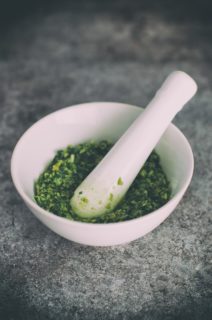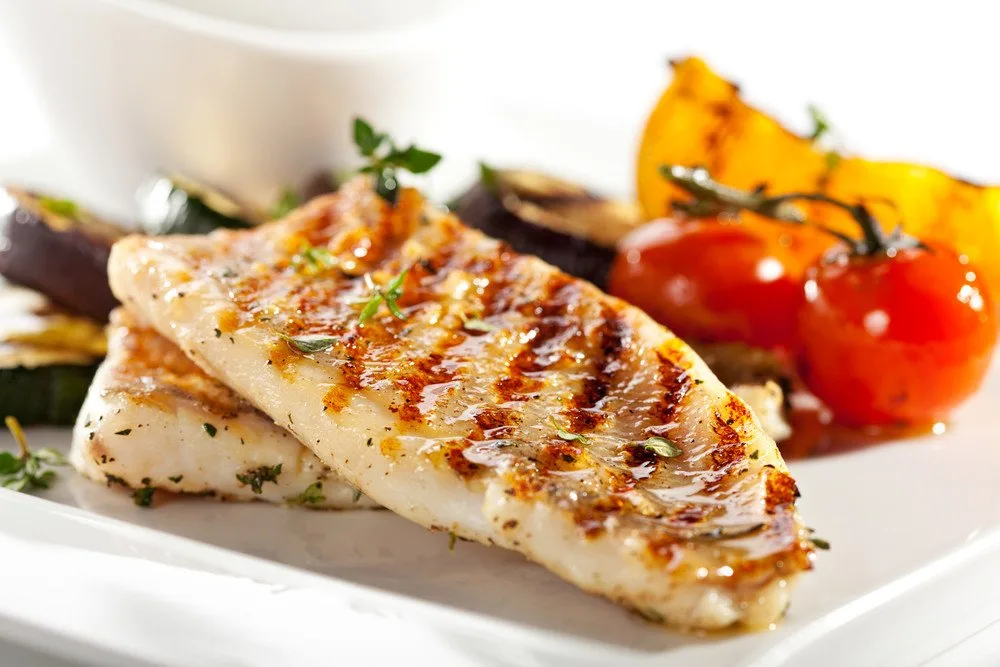This hake recipe can be prepared to be gluten-, grain and diary-free; no-carb and paleo-friendly. Serve it with a simple salad of lettuce, (it contributes digestive enzymes) and avocado (providing good fats and fibre).
Ingredients:
- 4 large hake fillets (frozen is fine)
- 250 punnet of cherry tomatoes
- 1/4 tsp sugar
- salt to season
- 1 tsp coconut oil
For the pesto:
- 1 cup fresh coriander leaves
- 1 cup rocket leaves
- 1/2 cup raw cashews
- 75 ml olive oil
- juice of 1 small lemon
- 1 clove garlic, grated
- Himalayan salt to taste
Method to prepare:
1. Start by making the pesto. Simply add to your blender or food processor all of the pesto ingredients, and pulse until you have a course pesto consistency.
2. Season the hake fillets with salt and place them skin down in a hot skillet/pan with a little coconut oil. They will need only 15 minutes of cooking time, turning them over just once at the very end. 
3. In a separate pan, sauté the cherry tomatoes in a little oil for approximately 5 minutes on high heat, stirring frequently. Season with salt and sugar.
4. Serve the cooked fillets on a platter, skin down, adding dollops of pesto and the sautéed tomatoes.
Health benefits of hake, coriander and tomatoes
Hake is an excellent source of low-fat protein, and is packed with other ingredients such as vitamin B12, B6, thiamin, riboflavin, folic acid and pantothenic acid. These B vitamins are essential for metabolism and the formation of red blood cells. Hake is also a source of omega-3 fatty acids, and minerals such as magnesium, zinc, calcium, selenium and phosphorus. Click here to find out why you should include more of this by introducing your body to the Mediterranean diet.
Coriander, also known as cilantro, is a good source of vitamins K, A and C; folic acid and minerals such as manganese, potassium, copper, iron and calcium. Coriander assists in clearing up skin disorders such as eczema and dryness, helps to prevent nausea and stomach disorders, and helps to reduce swelling due to kidney malfunction or anaemia.
Tomatoes are rich in vitamins C and A, both of which fight infection and are essential for immune health. Tomatoes are also high in lycopene, which protects our skin from ultraviolet damage and oxidative stress. It also reduces the risk of osteoporosis. Try to include cooked tomatoes in your diet frequently, as the lycopene content increases with cooking.



![women [longevity live]](https://longevitylive.com/wp-content/uploads/2020/01/photo-of-women-walking-down-the-street-1116984-100x100.jpg)










